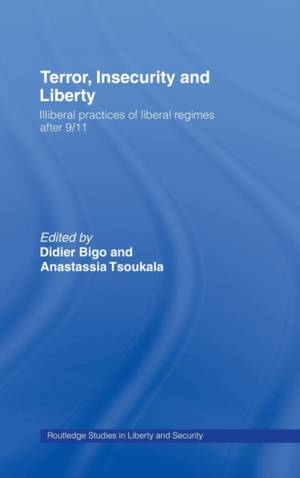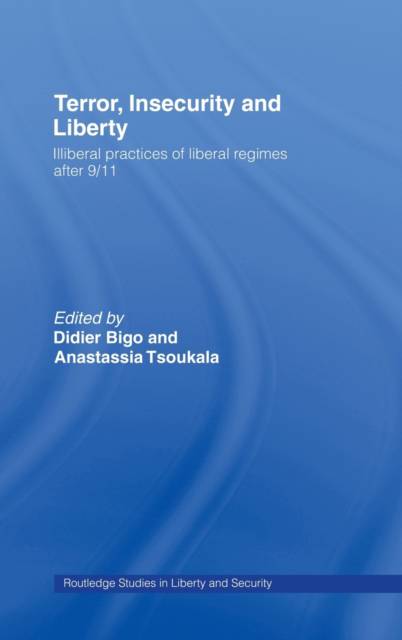
- Retrait gratuit dans votre magasin Club
- 7.000.000 titres dans notre catalogue
- Payer en toute sécurité
- Toujours un magasin près de chez vous
- Retrait gratuit dans votre magasin Club
- 7.000.0000 titres dans notre catalogue
- Payer en toute sécurité
- Toujours un magasin près de chez vous
Terror, Insecurity and Liberty
Illiberal Practices of Liberal Regimes after 9/11
Description
This edited volume questions the widespread resort to illiberal security practices by contemporary liberal regimes since 9/11, and argues that counter-terrorism is embedded into the very logic of the fields of politics and security.
Although recent debate surrounding civil rights and liberties in post-9/11 Europe has focused on the forms, provisions and legal consequences of security-led policies, this volume takes an inter-disciplinary approach to explore how these policies have come to generate illiberal practices. The book argues that policies implemented in the name of protection and national security have had a strong effect on civil liberties, human rights and social cohesion - in particular, but not only, since 9/11. The book undertakes detailed sociological enquiries concerning security agencies, and analyses public discourses on the definition of the terrorist threat. In doing so, it aims to show that the current reframing of civil rights and liberties is in part a result of the very functioning of both the political and the security fields, in that it is embedded in a broad array of domestic and transnational political, administrative and bureaucratic stakes.
Spécifications
Parties prenantes
- Editeur:
Contenu
- Nombre de pages :
- 212
- Langue:
- Anglais
- Collection :
Caractéristiques
- EAN:
- 9780415466288
- Date de parution :
- 13-05-08
- Format:
- Livre relié
- Format numérique:
- Genaaid
- Dimensions :
- 163 mm x 236 mm
- Poids :
- 453 g

Les avis
Nous publions uniquement les avis qui respectent les conditions requises. Consultez nos conditions pour les avis.





